Australia is home to more than 1.2 million Chinese-Australians, some five per cent of the Australian population. Their experiences are as diverse as their views: many were born in Australia, with lineages that span generations of Australian history. Others have migrated more recently from China, Hong Kong, Taiwan and Southeast Asia.
Many Chinese-Australians report being uniquely affected by Australia’s fraught relationship with China, the foreign interference debate and the Covid-19 pandemic. The second year of the Lowy Institute’s Being Chinese in Australia survey continues to show a broad diversity of opinion within these communities.
- As in previous years, most Chinese-Australians identify with both countries and cultures. However, the number of Chinese-Australians that feel a sense of belonging to Australia, China and their local community has fallen since 2020.
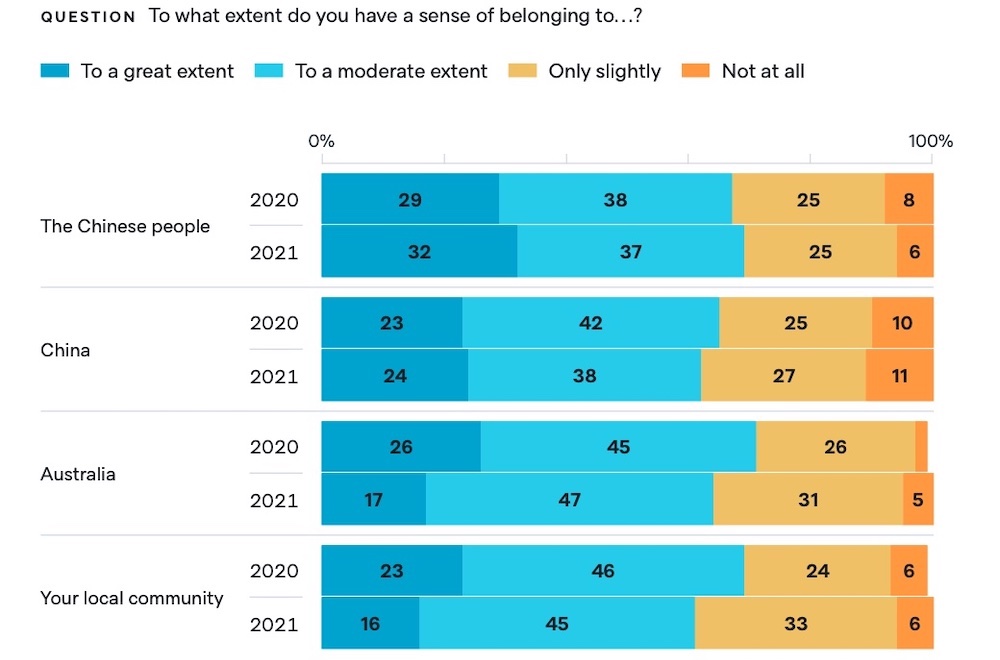
- WeChat, the Chinese “super-app” that includes messaging, social media, financial payments and more, has attracted much debate in recent years. Most Chinese-Australians rely on the app for Chinese-language news (86%) and contact with friends and family (66%). But they are also sceptical of the reliability of news shared on the platform. More Chinese-Australians rate Australian media platforms as being fair and accurate (71%) than news shared on WeChat (49%). Nevertheless, the majority of Chinese-Australians (57%) say that Australia media coverage of China is “too negative”, an increase of seven points since 2020.
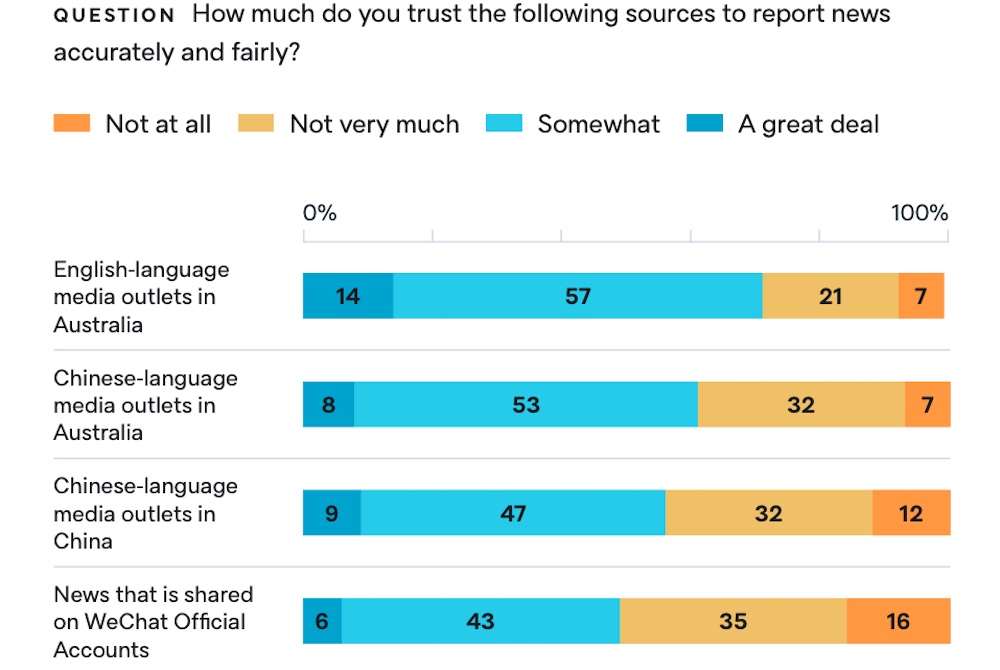
- While Chinese-Australians remain much more trusting of China than the broader Australian population, and have far higher levels of confidence in China’s leader Xi Jinping, Chinese-Australians have become more concerned about foreign interference. In the latest survey, at least half say that the public, politicians and media are paying “about the right amount of attention” to foreign interference, an increase of more than 20 points since 2020. Half the Chinese-Australian population (50%) are concerned about foreign influence from China on Australia’s political processes, while 36% are concerned about influence from the United States.
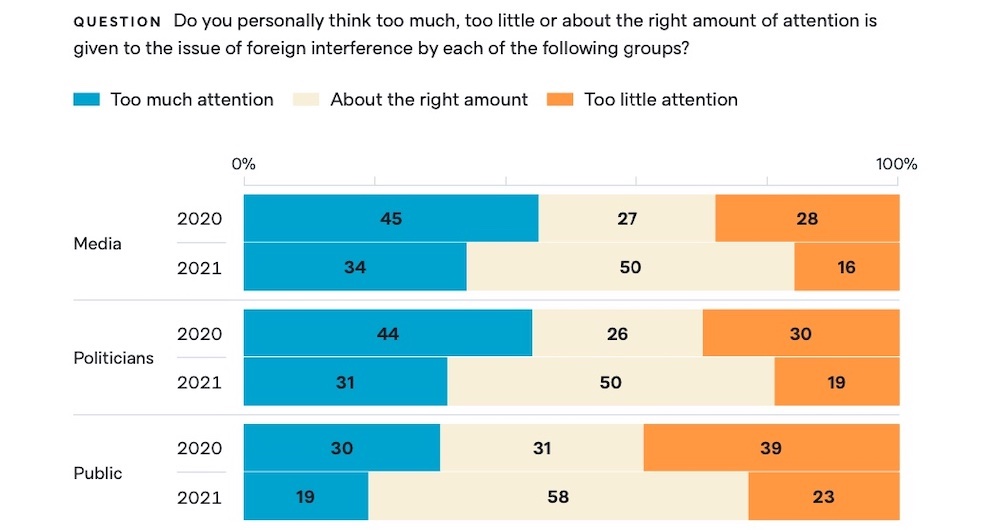
- With differing international approaches to managing the Covid-19 pandemic, the majority of Chinese-Australians see countries aiming for Covid-zero as handling the pandemic well. Amid intense global speculation and outright disinformation, the survey also reveals significant uncertainty and divided opinions among the Chinese-Australian community as to the origins of the pandemic, with 31% saying they are unsure, 27% saying the virus originated in a lab leak in the United States, 15% saying a lab leak in China, and only 21% believe that the most likely cause of the Covid-19 pandemic was from human contact with an infected animal in China.
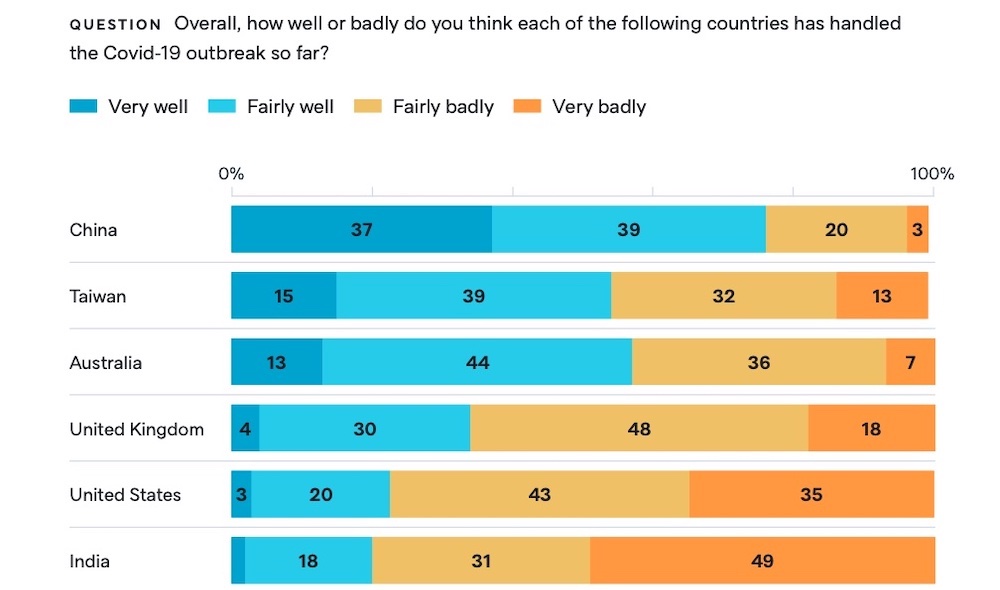
- The majority of Chinese-Australians continue to see China as “more of an economic partner to Australia”, in contrast to the broader Australian population that see China as “more of a security threat”. Nevertheless, Chinese-Australians are less optimistic than other Australians about Australia’s position in great power competition, with only 53% saying it is possible for Australia to have a good relationship with China and United States at the same time. This view is held by 72% of the broader Australian population.
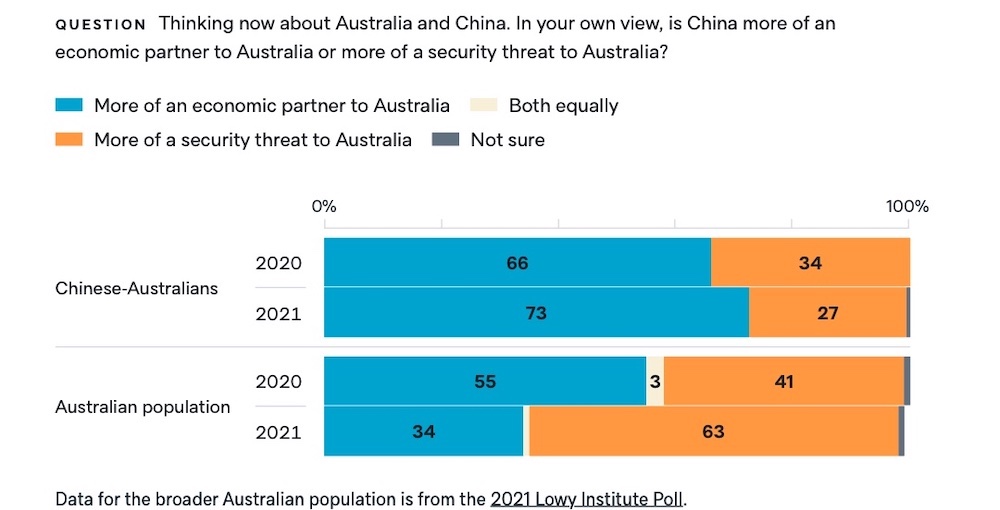
Being Chinese in Australia: Public Opinion in Chinese Communities reports the results of a national survey of 1002 adults in Australia who self-identify as of Chinese heritage. The survey was conducted between 16 September and 24 October 2021. The Social Research Centre (SRC) conducted the non-probability online survey using the Multicultural Marketing and Management (MMM) panel.

